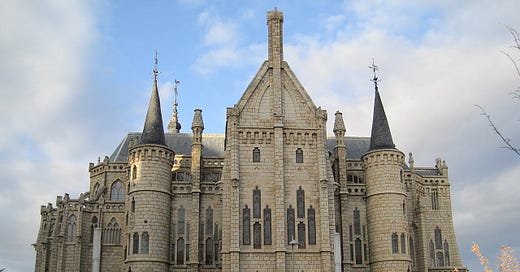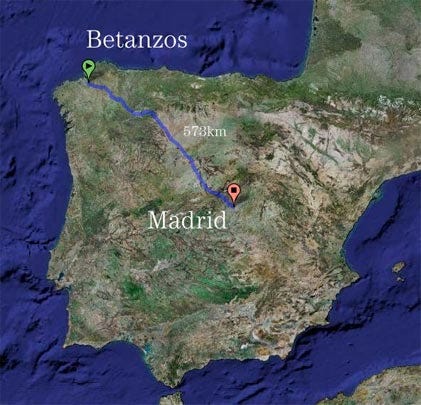Madrid is a food paradise! And, oddly enough, in particular, for fish.
Fish you say!!??
Yes, landlocked, and situated smack dab in the center of the country, several hundred miles from the nearest ocean or sea, Madrid serves great fish! Last week, fresh off the plane from the US, I had lunch with dear friends at one of Madrid’s restaurants of the moment, Desde 1911.
Desde 1911, is all fish, only fish, all the time. How did it come to be?
Enter the people from the Maragateria. What? Exactly!
I am working on my third novel set in Spain, and have travelled here more than 50 times, and yet I had to jump to Google to know what that word meant…
La Maragatería or País de los Maragatos (Tierra de Maragatos in Leonese language), is an ancient historical region or traditional comarca in the landlocked Province of León, Spain. It borders with La Cepeda comarca in the north, La Valduerna in the south, with the comarcas of El Bierzo and La Cabrera in the west and southwest, and in the east with La Vega del Tuerto and La Valduerna. Its inhabitants are known as "Maragatos"
Eh, ok. I know El Bierzo, a wine region on the Camino Santiago, but I needed a few more double-clicks to learn the area’s basics (and yes, in the region of Leon, there is yet another local language/dialect, Leonese). What a country of nuances!
The central town of this small area is Astorga. I know and like Astorga very much. It is on the old Roman Silver Road, and it punches way above its weight in terms of interesting sites, like the very unusual Episcopal Palace done the great Gaudí…
Five hundred miles from Barcelona, it is a very unexpected find. The Catalan genius popped-up here and created a fairy-tale like residence for the Bishop of Astorga. Visiting it is a worthy detour.
I am also fond of Astorga as it relates to the Camino Santiago. After days and days of walking across barren, dusty, treeless landscapes, the countryside begins to change. Just after leaving town, pilgrims begin to slowly ascend the Montes de Leon (Leon Mountains), where gorse and pine trees gloriously abound. It is heavenly.
But none of that has to do with a wonderful fish restaurant in Madrid. So, returning to the story at hand, the people from the Maragateria were renown as muleteers, pack and mule drivers. Going back as far as the 9th century, they were essential in the provisioning of food as well as other necessary products to the Kingdom of Castilla. Over time, they developed the reputation for being extremely brave and highly trustworthy stewards of the goods they transported.
In the early 1800s they saw the opportunity to supply Madrid with fresh fish from nearby Galicia…
To enable these deliveries, they built wells which they filled with ice in winter (and remaining frozen even during summer) to maintain the freshness of the fish. Their ingenuity turned Madrid into the best seaport in the country. Yet, with the advent of the railroads, these hearty, industrious people were obsoleted. A diaspora occurred. Some muleteers left for Galicia, others to far-flung places like Uruguay, and still others relocated to Madrid.
That brings us back full circle to Desde 1911. Four generations separated from their ancestors who came to Madrid, Maria Juliana Azpiroz and Evaristo Garcia dreamed of bringing the freshest fish to Spain’s capital. With the spirit and tenacity of their forefathers running in their blood, two years ago they opened this gastronomic temple dedicated to serving the best available daily selections of seafood. Other than this sublimely delicious sliced salmon appetizer…
… and the lavish selection of Spanish cheeses which rolls up just before dessert (below is just one of the trolleys!!),
the plates of seafood change every day, depending on what today’s generation of muleteers deliver to Madrid. No printed menus here! Like the selections, the handwritten menu is fresh daily!
It was a four-hour feast of fish and friendship.
I can’t wait to return, if I can get a table at this highly sought after hot spot…









25 years ago I could still see the ruts in the road made by the fish wagons between Rabenal and Foncebadon which was deserted except for an old lady and fierce dog. The runnels in the bedrock like the grooves of a 78 record meant you could almost hear those carts......
Great restaurant, no doubt. You should plan your reservation well in advance, usually in the order of 3 months.